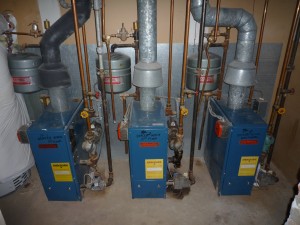DON’T DIY
Don’t Do IT Yourself – that motto can save you lots of money.
Sure you can air-seal and insulate just like a professional. You probably do it better because to the pro’s time is money and they are always in a hurry to get the job done. You can take days, or weeks, to hunt down every little hole where air is getting in or out. You can trim every piece of fiberglass batt to the exact shape. Travel time is not a factor if you do it yourself and the hardware superstore will deliver the materials to your door.
But here’s the catch. The energy savings subsidies (at least the one’s I am familiar with) are calculated on the total energy savings. If you do all the insulation yourself and then get an energy audit chances are the auditor will have a hard time getting to the energy savings threshold to get the best state rebates.
We see examples every week; the home owner proudly shows us his attic, where he put down an extra layer of fiberglass on top of the original, and a crawl space ceiling with perfectly fitted fiberglass batt. He wants to replace his old boiler and hot water tank. We measure everything, scratch our heads, come up with all sorts of ideas on where to put extra insulation, we propose the highest efficiency condensing, sealed combustion boiler, indirect hot water tank – and still come up short of the magic 20% energy savings needed to qualify for the NJ rebates and 0% loan.
When that happens you pay out of pocket for the high efficiency boiler or tankless hot water system that will take a real bite out of your energy bills. Those items are not amateur installations, no matter how handy you are.
The conclusion, much as it goes against common sense, is to do nothing to your house right now. Get the energy audit and let the auditor put forward a complete proposal. Then make the decision what you want done by them and what you will do yourself. You will need to get into some detail. The energy remediation companies are bound by some strict rules, and subject to quality control by the state and national bodies. So they will insist on doing the air-sealing, installation of equipment and any insulation up to the levels required to gain the incentives. Anything beyond that you can, of course, DIY – if you like crawling into tight spaces and messing about with caulk, cellulose and fiberglass.
So, procrastinate all you want in sealing those drafts and laying the insulation – just don’t procrastinate in calling the energy auditor – those rebates may not last very long given how the states are heading towards virtual bankruptcy.
Take the whole package!
There is a flip side to this story. Quite often we are called by a home owner for a specific problem – a cold and drafty kitchen, a boiler about to fail, kids with continual colds all winter because of drafts into the play area. We do the energy audit and do our recommendations, and in those recommendations we add things that the owner does not think need doing right now. The guy with the cold kitchen thinks his 15 year old furnace is fine. The lady with the leaking boiler does not want us to mess with the attic.
The state however wants the total energy savings for the house to come down – by a lot. The comprehensive proposal usually makes financial sense; little or no money out of pocket, with all the new equipment and work paid for by rebates and low (0% !) interest loans. It’s a matter of getting over the sticker shock of the whole deal and sometimes in just letting go of the (hugely inefficient) standard hot water tank that was installed just a year or so ago. Don’t look back at the sunk costs, concentrate on the out of pocket costs and the ongoing monthly payments for the loan. Those loan costs will be largely paid for by the energy savings. The repayment balance can only get better over time – nobody is predicting that energy prices will come down!
Will energy efficiency add value to your house?
The energy auditor, based on national surveys, will tell you yes! In your gut you wonder about it, given the state of the market, and your own experience in buying a house. We all know what we look for – the better zip code, the school district, the general appeal of the house, the kitchen (apparently the make and break room in the whole deal) and then the bathrooms, garage, finished basement and so forth. Nobody gives a thought to energy.
Or will they? I think people are taking it into consideration. This 2009 article from the UK shows early reaction to the topic there. Here, in the US, energy efficiency ratings are still in the trial stage and hotly opposed by the realtors. The discussion in the article gives some pointers to the likely reaction in the US.
Bottom line: If you can show the buyer that your house is more energy efficient than the similar one down the road you will make the sale, and probably at a price closer to your asking
Don’t try to save energy! It also costs you money. True story; we did an energy audit on a house where the owner had lived less than 12 months. We ran the numbers, all worked out fine and we signed a contract. Then, to get the state rebates I needed the gas and electricity bills for the time that they had been in the house. The owner sent them to me and said; good news, I’ve been in the house 12 months now, so we have a full year’s data to put into the system. Which we did – and got back an energy savings result that does not meet the state’s threshold for savings. Big problem! Turns out that when the owners got the first couple of bills in their new house they were so shocked they turned down the thermostats and really set their minds to reducing their consumption. So the actual bills (which we have to use if they are available) show a lower saving than the state’s default model. The owner misses out because of his good practice. We’re working it, and I ‘m sure we’ll come to some good outcome. In the meantime it just proves that no good deed goes unpunished.
Posted: February 27th, 2011 under Uncategorized.



Leave a Reply
You must be logged in to post a comment.